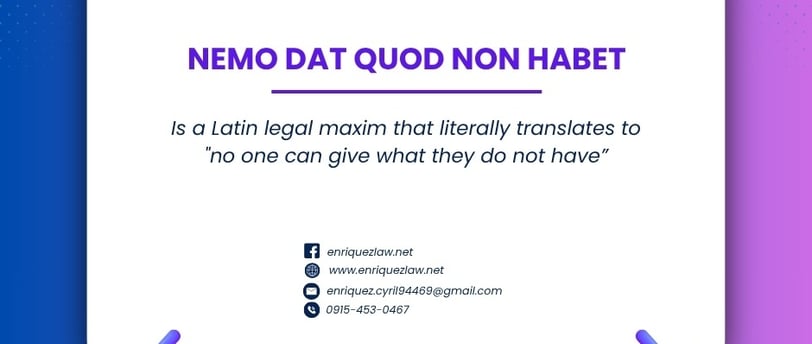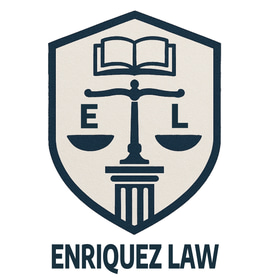When a Forged Deed Meets a Bank: The Case of Macalalad vs. Rural Bank of POLA, Inc. G.R. No. 200899, June 20, 2018
The Macalalad v. Rural Bank of Pola, Inc. case serves as a crucial reminder of several key points in property law: 1. The fundamental rule of "nemo dat quod non habet" is strong, but not absolute. 2. The innocent purchaser for value doctrine provides a vital exception, protecting those who acquire property in good faith without knowledge of underlying defects. XXxx
6/8/20252 min read


In the complex world of property law, few principles are as foundational as "nemo dat quod non habet" – "no one can give what they do not have." This Latin maxim essentially means you can't transfer ownership of something you don't legally own. But what happens when this bedrock principle collides with another crucial concept: the protection of an innocent purchaser for value, especially when that purchaser is a bank?
This was the central question in the case of Heirs of Paz Macalalad v. Rural Bank of Pola, Inc., a fascinating legal battle that reached the highest court.
The Heart of the Dispute: A Deceased Owner and a Disputed Sale
The story begins with Leopoldo Constantino, Jr., who passed away in 1995. Years later, in 1998, a Deed of Sale suddenly appeared, purportedly showing Leopoldo selling his 42,383-square-meter land to the Spouses Pimentel. This was suspicious, to say the least, given Leopoldo had been dead for three years.
The Spouses Pimentel then used this land as collateral for a loan from the Rural Bank of Pola, Inc. When they failed to pay, the bank foreclosed on the property, eventually acquiring the title in its name.
Paz Macalalad, Leopoldo's sole heir, cried foul. She argued that the sale to the Pimentels was a complete nullity because Leopoldo was already deceased. Therefore, the Pimentels had no legitimate title to mortgage, and the bank, consequently, had no right to the property. She sought to have the bank's title canceled and the property returned to Leopoldo's estate.
The Bank's Defense: Innocent Mortgagee for Value
The Rural Bank of Pola, Inc. countered, claiming it was a mortgagee and purchaser in good faith. They argued they had relied on the duly registered title presented by the Spouses Pimentel and had followed standard banking procedures in verifying the property.
This is where the "innocent purchaser for value" exception comes into play. While a forged deed generally cannot be the root of a valid title, an exception arises if an innocent purchaser for value intervenes. This legal doctrine protects those who buy property without notice of any defect in the seller's title and pay a fair price for it. For banks, this protection extends to their role as mortgagees.
The Courts' Verdict: Favoring the Bank
Both the Regional Trial Court (RTC) and the Court of Appeals (CA) sided with the Rural Bank of Pola, Inc. They found that the bank had exercised due diligence. The bank had sent a representative to conduct an ocular inspection of the property and verified the title with the Register of Deeds. The inspection report showed no indication of adverse possession or any red flags that would have alerted the bank to a problem with the Pimentels' title.
The Supreme Court, in reviewing the case, affirmed these findings. While acknowledging the "nemo dat quod non habet" principle, the Court reiterated that this rule has an important exception: when an innocent purchaser for value intervenes. The Court emphasized that banks, while held to a higher standard of diligence, are still entitled to rely on a clean certificate of title if their due diligence doesn't uncover any issues.
The petitioners argued that if the bank's representative had truly inspected the property, they would have found their tenant there, who could have informed the bank of the true ownership. However, the courts found no evidence to contradict the bank's report, which showed no such presence.
Disclaimer: This blog post provides general information and should not be considered legal advice. It is always best to consult with a qualified legal professional for specific situations and legal guidance.
